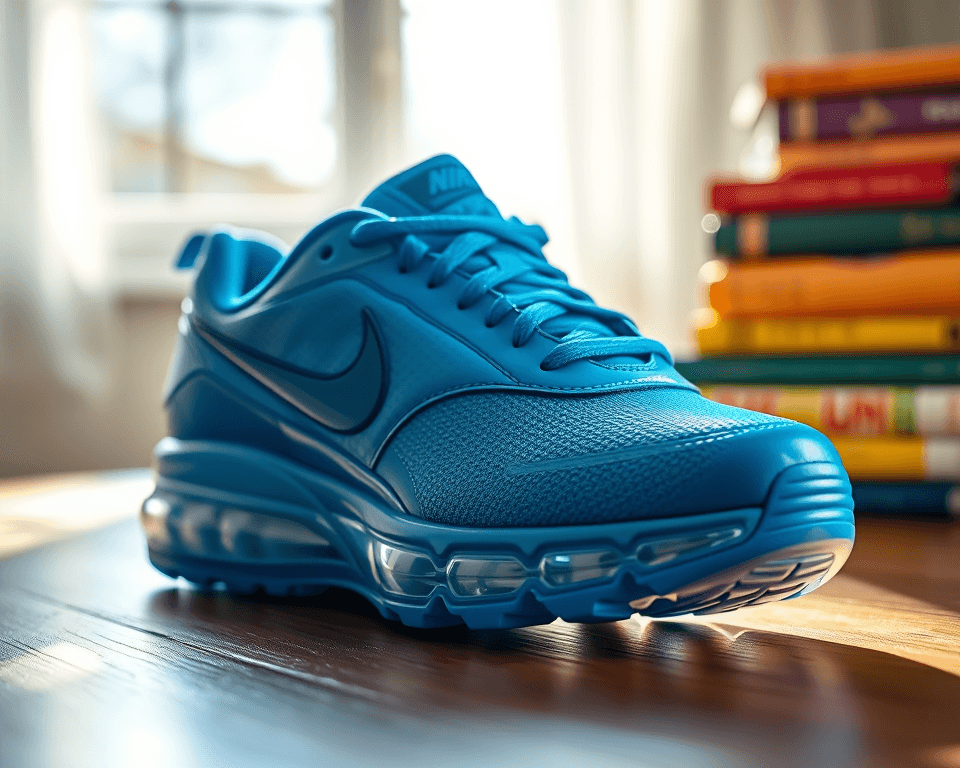When life throws you curveballs—deadlines, breakups, or the infamous Tuesday blues—there’s one remedy I often turn to: shopping. I know, I know; it sounds cliché. But let me tell you, the psychological perks of a good retail therapy session can be downright life-changing. Honestly, if you’ve ever experienced the rush after snagging a killer deal on that pair of Nike Air Max (retail: $130, but you got them for $80?!) or the delightful moment when that new book by Colleen Hoover arrives at your doorstep, you know what I’m talking about.
Key Takeaways:
- Retail therapy can boost your mood and self-esteem, especially when approached mindfully.
- There’s scientific research backing the mood-enhancing effects of shopping—like dopamine releases!
- Tips for enjoying shopping without the guilt or financial strain can empower your retail therapy sessions.
Ready to dive into how retail therapy might just be the secret weapon your emotional toolkit was missing? Let’s go!
1. Understanding Retail Therapy
Ever heard the phrase, “money can’t buy happiness”? Sure, that’s true to a point, but let’s unpack the idea of retail therapy, shall we? It’s about more than just mindless shopping sprees; it’s about using that spending to create a more positive emotional space.
What is Retail Therapy?
Retail therapy isn’t about going on a wild spending spree every weekend. Instead, it’s when we make purchases specifically to enhance our mood or combat negative feelings. Historically, this practice has roots going back to the 1980s, and even before that, where consumers began associating shopping with happiness. Think of it as a way to reward ourselves after a rough week or celebrate life’s small victories.
In today’s world, it’s everywhere—Instagram ads, influencer hauls, your friend’s closet refresh from Fashion Nova. But here’s the kicker: this isn’t just a fluke. There’s a method to the madness.
“Shopping is a form of self-care, as long as it’s approached with mindfulness.”
People often don’t realize that their consumer behavior is often linked to emotional needs. Society, with its cultural shopping habits, pushes us toward this satisfaction; it’s kind of like a built-in escape route.
So, does shopping improve self-esteem? Absolutely! The effects of emotional spending can be astounding for self-worth—when we look good, we feel good. A cute new outfit from Zara can make those Monday blues melt away. But remember, moderation is key to avoid turning this into a compulsive habit.
Psychological Research Behind Retail Therapy
So what does science have to say about all this? Well, let’s break it down. Studies show that shopping releases dopamine, which is basically your brain’s feel-good chemical. This is big news when you consider how that jolt of happiness can help combat stress.
Research has indicated that engaging in “therapeutic shopping” can significantly improve mood. For example, a 2014 study from the Journal of Consumer Research found that individuals who engaged in shopping reported greater elevation in mood than those who didn’t. Crazy, right?
| Study Title | Findings |
|---|---|
| “The Effect of Retail Therapy” | Shopping for oneself boosts mood significantly. |
| “Dopamine and Spending” | Purchases trigger dopamine release, enhancing joy. |
| “Impulse Control and Happiness” | Mindful spending mitigates guilt and increases happiness. |
The takeaway? If you’re feeling down, a smart shopping choice might just give your mood a lift.
2. How Retail Therapy Improves Self-Esteem
Now let’s chat about how retail therapy kicks self-esteem up a notch. For a lot of us, our self-worth is deeply tied to what we own or present. And there’s nothing wrong with treating yourself to something special every once in a while—trust me, it can be powerful!
Practical Examples of Self-Esteem Enhancement
Ever stood in front of the mirror in a new outfit and thought, “Wow, I look amazing”? That’s the power of shopping! Real-life examples abound. Take Sarah, for instance, who felt mediocre after she landed her new job. Instead of wallowing, she decided to splurge a bit on a beautiful Michael Kors handbag (around $250). The moment she carried it into work, she not only felt more confident but also began to present herself differently.
“Confidence is your best outfit; rock it, and own it!”
Similarly, when people purchase products that resonate with their identity, be it a new record player or the latest Apple Watch, they often report a boost in their self-image. Retail therapy gives us a chance to redefine ourselves through our purchases. It’s a way of saying, “Hey, I’m worth this!” And don’t get me started on the power of a statement piece of jewelry like a delicate Tiffany & Co. necklace—you just feel the vibes change!
Psychological Effects of Shopping on Mood
Let’s be real: shopping can lift your spirits, and studies prove it. Research shows that indulging in a little shopping reduces stress levels and elevates one’s overall happiness. The immediate effects of a fun shopping spree can lead to long-lasting mood enhancements, reminding us why we turn to the stores and online shops we love.
Another intriguing study shows a direct connection between shopping and emotional regulation. You get to control your shopping experience. Choose a target—a cozy cafe or a vibrant handbag shop. Set a joyful intention, and your mood might just skyrocket to the clouds. If you don’t believe me, try hitting a Nordstrom rack and score one of those markdowns on shoes you’ve been eyeing for months!
3. Engaging in Retail Therapy Wisely
Alright, here’s where we talk about the elephant in the room: how to make sure your shopping habit doesn’t spiral out of control. Because while retail therapy has its perks, it can also torch your finances if you’re not careful!
Practical Tips for Controlled Retail Therapy
First, set a budget. It sounds basic, but budget-friendly shopping strategies are crucial. Decide, for instance, that this month you’re all about those self-care splurges—say $100. When the budget runs out, pause. By creating limits, you become more intentional with your purchases—no more emotionally charged swiping on your credit card.
Mindful spending isn’t just about the dough; it’s also about how you feel while shopping. Instead of mindlessly filling your cart, think about what you really want or need—like those ultra-cozy UGG slippers that’ll add warmth to your Netflix nights (around $90) or a quality facial moisturizer that makes your skin glow.
To help avoid buyer’s remorse, take a moment to evaluate your emotions before making a purchase. Ask yourself:
– “Am I buying this to elevate my mood or simply because it’s there?”
– “Will this bring me long-term joy?”
And then have a look at this handy table below:
| Spending Category | Emotional Impact | Recommendations |
|---|---|---|
| Fashion & Accessories | Confidence boost | Limit to essentials or 1-2 fun pieces. |
| Gadgets & Tech | Temporary excitement | Invest in lasting quality items. |
| Home Decor | Comfort and style | Choose pieces that reflect personality. |
Recognizing Potential Pitfalls
Let’s get real: shopping can certainly become a slippery slope. Recognizing signs of unhealthy shopping habits can help you avoid a potential addiction. If you find yourself impulsively adding items to your cart or feeling a deep emptiness when you go beyond your budget, it might be time to reassess your approach.
Buyer’s remorse happens to the best of us, but it doesn’t have to take over your life. When shopping stops being fun and starts becoming a financial burden, it’s a red flag.
And if it becomes heavy on your heart or wallet? Don’t hesitate to seek help. Support groups and online communities exist to assist those struggling with shopping addiction; you’re not alone in this!
“To enjoy shopping while securing your financial health, you need balance.”
Balancing your love for retail therapy with a stable financial reality is crucial. There’s a world of self-care that doesn’t involve maxing out your credit card—think about indulging in a nice book or planning a day out with friends instead of just shopping.
Now, that said, when you engage with retail therapy thoughtfully and keep your mind emotionally aware, the benefits can be profound, adding joy to your day-to-day life.
Thrilled to embrace a new mindset toward spending? Let’s be honest—shopping can really put a smile on your face when you approach it right.
Frequently Asked Questions
What is retail therapy and how does it work?
Retail therapy refers to the practice of shopping to improve mood or alleviate stress. It works by activating the brain’s reward system, releasing neurotransmitters like dopamine that can enhance feelings of happiness and satisfaction, making it a popular coping mechanism.
Is retail therapy always a positive experience?
While retail therapy can boost mood and self-esteem for many, it may lead to negative consequences if done excessively. Impulsive or compulsive shopping can result in financial issues or buyer’s remorse, which can negate the initial positive effects.
How can I engage in retail therapy responsibly?
To shop responsibly, set a budget before you begin and stick to it. Mindful spending, planning shopping trips as a form of self-care, and recognizing when shopping turns unhealthy are key strategies for engaging in retail therapy without remorse.
What are the signs of shopping addiction?
Signs of shopping addiction include frequently buying items you don’t need, feelings of guilt after shopping, hiding purchases, or neglecting responsibilities due to shopping. If these behaviors resonate, it may be time to seek help or evaluate your spending habits.
Can shopping really improve self-esteem?
Yes, shopping can enhance self-esteem by allowing individuals to express their identity and make choices that reflect their personal style. However, it’s important to ensure that self-worth isn’t solely tied to material purchases.
Are there specific types of purchases that enhance mood more than others?
Typically, purchases that are meaningful or fulfill a personal need, like clothing or experiences, can enhance mood more than impulsive buys. Investments in quality items may provide greater long-term satisfaction compared to transient purchases.
What strategies can I use to avoid impulse shopping?
To avoid impulse shopping, create a shopping list before you go out, set specific shopping goals, practice waiting techniques (like a 24-hour rule before purchasing), and limit exposure to advertising triggers that encourage spontaneous spending.
How does retail therapy differ across cultures?
Cultural attitudes towards shopping vary significantly; some societies emphasize consumerism as a form of self-expression, while others may view it as excessive behavior. Understanding these cultural differences can enhance your perspective on retail therapy’s psychological impact.
What resources are available for individuals struggling with shopping addiction?
There are numerous resources for those facing shopping addiction, including counseling services, support groups like Shopaholics Anonymous, and online forums. Professional help can provide strategies and coping mechanisms to manage compulsive shopping tendencies.
How can I tell if my retail therapy is becoming a problem?
If you find yourself frequently regretting purchases, accumulating debt due to spending, or using shopping as a primary way to cope with negative emotions, these may be signs that your retail therapy is becoming problematic. It may be beneficial to seek professional guidance.










